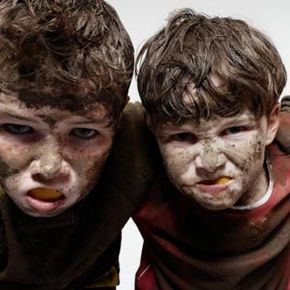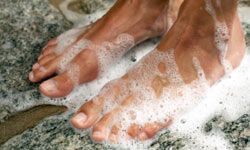What's the deal with washing our faces? Mothers seem to think it's important, but children (and some adults) don't really see what the big deal is. You have to choose between a store-aisle's worth of products and it takes a precious five minutes of your day you'd rather spend doing something else, like watching cartoons -- or sleeping.
As it turns out, our mothers' opinions on this matter are supported by doctors and researchers who unanimously agree that we should, in fact, wash our faces daily. Not only that, but some of our mothers were actually sugar-coating the situation, because not only should we wash our faces daily, we should do it twice: once in the morning and again in the evening. That seems like a lot of work, so why should we do it?
Advertisement
Because the world is gross and dirty. Your own skin is covered in a layer of dead skin cells, bacteria, pollutants, viruses and dirt. (In fact, every single day you shed about 50 million dead skin cells [source: Chudler].) And that layer will get thicker over time unless you take drastic action and wash your face twice a day. Washing our faces not only gets rid of various antigens (tiny unwanted foreign invaders), it also provides our skin much-needed hydration. (This is why it's important to moisturize your skin shortly after bathing; the moisturizer's function is to seal moisture within the skin.)
But what if you just said "no" to washing your face? Would your face become so dirty as to render you unrecognizable after a few days, or would your nose -- heavy from the weight of accumulated dirt -- suddenly slide right off your face with the suddenness and finality of a large iceberg cleaving and crashing from the ice cap? After a few weeks, would your face suddenly roll up like a window shade? Or would it, as you've long suspected, be pretty incredible?
What would happen if you never washed your face? To find out, you must keep reading.
Advertisement

